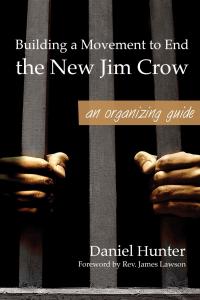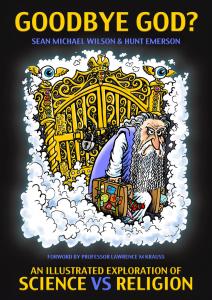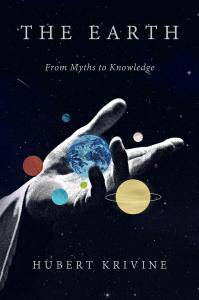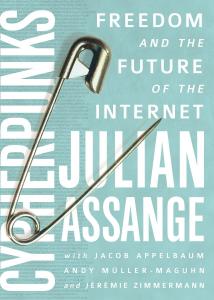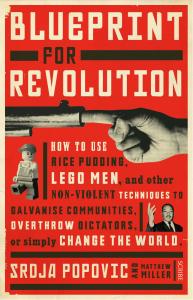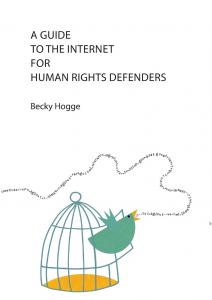From the first recorded strike in human history (by Egyptian artisans in 1170 BCE) to a successful sex strike by Colombian women in 2011 (‘No more sex. We want our road’), civil resistance – ‘collective action for political or social ends without any systematic recourse to violence’ – has had a long and varied history.
It also looks set to have a long and varied future. Indeed, according to the authors of these books, there has been a greater tendency in recent decades for popular…
Carlyle, Gabriel
Carlyle, Gabriel
Gabriel Carlyle
Described by Cornel West as a ‘secular bible for a new social movement’, Michelle Alexander’s 2010 book The New Jim Crow argued that the US prison system – the destination for one-in-three Black US males during their lifetime, compared with one-in-17 of their white contemporaries – had become ‘a stunningly comprehensive and well-disguised system of racialized social control’, functioning in a manner ‘strikingly similar to Jim Crow’ – the system of government-sanctioned racial…
A self-described ‘socialist-anarchist-feminist’, the US activist and writer Marge Piercy is the author of 17 novels, spanning a wide range of different genres including science fiction, as well as one of North America’s best-selling poets.
Nonetheless, this latest addition to PM’s excellent ‘Outspoken Authors’ series eschews fiction to focus on ‘essays, rants and railleries’. The latter cover a wide variety of topics, including abortion, homelessness, censorship, the tragedy of…
Do you want to be part of a rising movement for climate justice and a Just Transition to a decarbonised economy? The UN summit on climate change (COP21) is coming to Paris in December and mobilisations are gaining momentum.
PN is…
Believers sometimes claim that atheism is ‘just another form of religion’. This is untrue: the failure to believe in the existence of something for which there is no evidence is not in itself another form of irrational faith.
However, when atheists start evangelising for their position, attempting to convert people to atheism, and arguing that world peace and the future of civilisation depend upon their efforts, then the parallels with religion are all too clear.
…
I remember talking to a friend about this book when it was first published in 2013. Climate change, its potential to end civilisation as we know it, and a practical plan for how to tackle it, had been the central topics of his previous book, Heat (see PN 2480-81). But now it looked like George Monbiot had gone off on a tangent. And, while clearly it was something that he was passionate about, it didn't sound like it was much of a priority for either of us.
In fact,…
In A Study in Scarlet, Dr Watson is famously scandalised by Sherlock Holmes’ lack of basic astronomical knowledge, writing: ‘That any civilized human being in this nineteenth century should not be aware that the earth travelled round the sun appeared to me to be such an extraordinary fact that I could hardly realize it.’
Over 125 years later, there are still plenty of people who share Holmes’ ignorance. Indeed, a 2012 poll found that just over a quarter of US residents…
The internet has been transformed from a tool of emancipation ‘into the most dangerous facilitator of totalitarianism we have ever seen’. Thus wrote Julian Assange* in his 2012 introduction to Cypherpunks, an eye-opening annotated transcript of a conversation between the Wikileaks founder and three other prominent internet activists.
At that time, such a claim might have appeared hyperbolic. However, in the wake of Edward Snowden’s 2013 exposure of the global surveillance…
At the first nonviolence training I ever attended, I was given a copy of Gene Sharp's famous list of the '198 methods of nonviolent action' (the 199th method, the trainers opined, was to flypost copies of the list itself). I subsequently purchased a second-hand copy of Sharp's famous three-volume work The Politics of Nonviolent Action but – like many others, I suspect – never did much more than dip into…
The First World War centenary has been accompanied by a tidal wave of books. Here we survey seven titles that might interest PN readers.
Gerwarth and Manela’s collection of essays aims to challenge two ruling assumptions of Western historiography: ‘that the war began with the sounding of the “guns of August” in 1914 and ended with the Armistice of 11 November 1918’, and that it ‘was primarily one of nation states and... a largely European affair’.
Instead, they…
Unless you’ve been asleep for the last 15 years, you’ll be aware of the increasingly pervasive role played by the internet in everyday life, with an estimated 2.5 billion people currently able to access its staggering resources.
You’ll also be aware of both its use by activists for purposes ranging from e-petitions and Twitter storms, to whistleblowing and revolution, and of the manifold threats it poses to civil liberties, both here and abroad.
Leaked US national…
In his recent book on the US civil rights movement, This Nonviolence Stuff’ll Get You Killed, Charles Cobb argues that ‘although nonviolence was crucial to the gains made by the freedom struggle of the 1950s and ’60s, those gains could not have been achieved without the complementary – and underappreciated – practice of armed self-defence’. Indeed, the willingness to use deadly force, Cobb asserts, ‘ensured the survival not only of countless brave men and women but also of the…
NB This piece accompanies this article.
Charles Sims, one of the best-known proponents of armed self-defence within the US civil rights movement, was asked in 1965 how activists could best advance the movement without nonviolence.
He responded: ‘I believe nonviolence is the only way.’
Robert F Williams - smeared here on an FBI'wanted' flier - was a…



